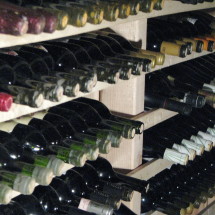Law Offices of John P. Connell, P.C.: Liquor retailers have made recent headlines after getting caught switching out the contents of top-shelf liquor bottles and selling their customers cheap liquor for more. In the past year, over one hundred investigators for the Alcoholic Beverage Control (ABC) in the state of New Jersey participated in a probe known as “Operation Swill” in which they discovered twenty-nine New Jersey licensed restaurants and bars had engaged in the practice of refilling brand-label liquor bottles with well-quality liquor. Of the twenty-nine establishments investigated, one allegedly sold rubbing alcohol with added caramel coloring as “scotch,” and another allegedly diluted premium liquors with unclean water.
TGI Fridays restaurants accounted for thirteen of the twenty-nine establishments involved in the probe. The operator of the TGI Fridays franchise, The Briad Group, agreed to pay $500,000 in fines to the New Jersey ABC, which included $400,000 for violations and $100,000 for costs incurred during investigations. These fines were chosen in lieu of serving suspensions on the liquor licenses of those TGI Fridays restaurants. The Briad Group also faces a class-action: two New Jersey women are seeking to recover on behalf of all customers who were given a drink they did not pay for. The two women seek to recover punitive damages equal to triple the price of each of those drinks.
Federal law provides that “no person who sells … distilled spirits, or agent or employee of such person, shall place in any liquor bottle any distilled spirits whatsoever other than those contained in such bottle at the time of tax determination”; nor add any substance whatsoever to any such liquor bottle; nor alter or increase any portion of the original contents of any such liquor bottle; nor possess any liquor bottle in which any distilled spirits have been wrongfully placed. 26 USC §5301(c)(1)-(4). Violation of this law imposes strict criminal liability. See United States v. Wedgewood, Inc., 457 F.2d 648, 650 (1972).
Retailers in Massachusetts should be wary of this law as well, and should keep a watchful eye on their employees to ensure they do not engage in this deceitful practice. In United States v. Wedgwood, Inc., the United States Court of Appeals for the First Circuit affirmed a decision that rendered a lounge located in Lowell, Massachusetts strictly liable for possession of ten altered liquor bottles. Id. at 649. In this case, Internal Revenue agents of the Alcohol, Tobacco and Firearms Division investigated the local lounge and, after discovering the ten altered bottles, held not only the lounge liable as a corporate entity, but the owner and manager and an employee of the lounge as well. Upon appeal of their convictions, the owner and employee alleged that they could only be punished for “knowing participation” in the offense due to their status as agents for the corporation. Id. at 650. Yet the Court of Appeals ruled that “any person, be they individuals or corporations, who sell[s] or offer[s] liquor for sale” in violation of §5301(c) is strictly liable “regardless of scienter.” Id. (Emphasis added).
© Law Offices of John P. Connell, P.C., 2013.

